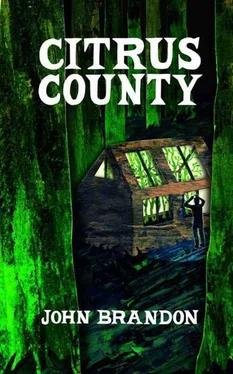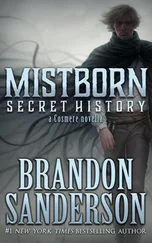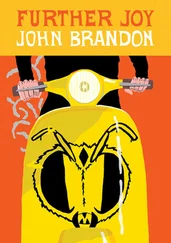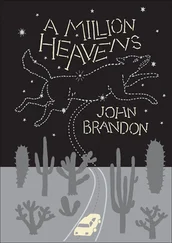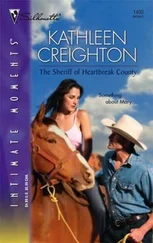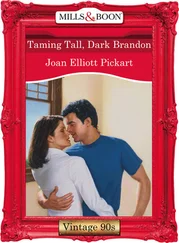The house was a perfect rectangle. Shelby stuck to the wall. She moved down from Toby’s room, stepping over dry, stubborn bushes. If she saw Uncle Neal, then great; if not, that was okay, too. She didn’t need to see him. What would it help? She’d seen where Toby ended up every night, and that was the important thing. She came to a larger window. The blinds were dropped all the way, but a few of them were bent, as if something had been thrown against them. Shelby positioned her eye and saw a big, empty table and some metal folding chairs. The edge of a counter was visible, a big bowl of matchbooks. Everything was so still inside, same as Toby’s bedroom, like a museum exhibit. Maybe Uncle Neal wasn’t even home. Maybe he was out of town on a job. Shelby hadn’t seen any cars out front, but she hadn’t seen a proper driveway, either.
A blackbird began ranting from behind her and she got moving again, passing a lonely wooden door. There was no back patio, no steps or anything, just a door painted a shade darker than the house. The next window was small, at eye level. Shelby had a full, obscene view into the kitchen. There were puny oranges on the sill. A large portion of the counter space was given over to two-liter bottles of soda, all lined up stiffly like an army unit. There was a tray of what appeared to be surgical tools, soaking in a tinted liquid. Shelby was gazing at the tray when there was movement off to her right. She froze, couldn’t do a thing, couldn’t even unlock her knees and drop. But freezing was the correct thing to do. It was Toby, and he hadn’t noticed her. He was looking at nothing, talking to himself. Shelby watched him shuffle into the woods on one side of the house and once again she was following him.
She tracked Toby and tracked Toby, and the whole afternoon seemed like one moment now, one sprawling moment. The shadows congealed, preparing to be phased out. There was a line of weather-beaten stakes hammered into the ground at even intervals, a lot of trees with pink ribbons on them. Shelby noticed there were no more tracks of any kind in the marled ground. She realized she was behaving like a crazy person. She was stalking someone through wild unfamiliar acreage, afternoon giving way to evening. She wondered whether, if Toby got away from her, she would be able to find her way home. The trees looked forgotten. They were real trees, like up north — maples or sycamores. They’d never lost their leaves. The back of Shelby’s shirt was damp and sticking to her. She knew she should stop now, knew she should go back. And then Toby dropped to one knee. Shelby eased closer, to see what he was doing. He tossed moss clumps and branches this way and that. He dragged a raft of brush. All his movements were void of emphasis, nothing but utility. Shelby got low, observing Toby through the fronds of a palmetto stand. Her thighs were numb, exhausted from traipsing through the sandy woods, and now from crouching. Was Toby making camp? Maybe things at his house were that bad. Did he sleep out here, in the woods?
Toby rose and leaned and pulled up some kind of door, and when he did, the acoustics of the world warped. All the sounds slowed. Shelby grasped a palmetto frond, down near the base where they were sturdy, and pulled herself farther into the stand, the blades of the frond digging into her soft palm. Shelby’s body knew something was happening; the animal part of her knew. Toby descended into the ground, pulling something onto his head. He had been standing there and now he wasn’t. Toby had some kind of underground lair. Shelby was close to the real, secret Toby. She had to stay hidden. If Toby discovered she’d followed him out to this place, this place he considered all his own, he wouldn’t ever trust her again. Shelby had to wait him out.
After just a minute or two, he was back. He emerged and peeled off what appeared to be a ski mask and flipped the roof of his lair back over. He let it close with its own weight, like the hood of a car, and then, without bothering to drag the branches back on top of it, went back through the woods the way he’d come. Shelby watched his red shirt get smaller and smaller. She didn’t follow. She remained hidden, waiting. It seemed foolhardy, leaving her hiding space, abandoning the palmetto. She was about to betray Toby. She stood up and approached. The door was octagonal and had one little handle that latched and unlatched it. Moss and mushrooms were all over it. It was out of place, how moist and muddy the hatch was, in an otherwise dry section of the woods. Shelby began to reach for the handle and she heard a sound from inside. Her guts performed one ponderous flip. A small voice, muffled. It was singing. A child’s voice. Shelby knew there were physical actions she had to undertake, and the first one was lifting this hatch open. She was going to concentrate on the actions. She was going to keep doing the next thing.
Toby awakened with a craving for an icy soda. His throat felt like it needed to be scoured. The lights in the room were off, but the door was open and even the scant light from the hall was harsh in Toby’s eyes. It was exactly as dim outside the window as it was in Toby’s room. It was dawn or dusk. In the coming hours, Toby would be expected to fall back asleep or he would be expected to face a day.
Toby had never been in one before, but the sour, sprucy smell and the gamut of beeps he heard — monitoring machines, the bing of the elevator, the buzzing of the nurses’ call buttons — all came together in a way that could only be a hospital. Toby remembered being brought here. He’d been loaded into the back of a van. Stale rock music had been playing on the radio. He remembered a wheelchair, an elevator, but before that a police station, another place he’d never been. The station had seemed tiny from the outside, but inside it went back and back. Phones had been ringing and no one would answer them. A lady had administered a bunch of tests on Toby, then he’d been given a hot dog with no bun and a very small apple. This memory was sharp, the smallness of the apple. Toby had eaten it in three or four bites and hadn’t touched the hot dog. What Toby did not recall was the police arriving at his uncle’s house. He remembered walking back from the bunker after making one final check on Kaley. He’d had her dressed the way he wanted her and had let her hair grow out in the past weeks until it looked like that FBI agent’s hair. He’d gone back to the house to wait for night to fall, not meaning to go to sleep. He’d stretched himself out on the floor of his bedroom, wanting to get down onto something firm and permanent rather than his mushy mattress, and the next thing he knew he’d been awakened by a shot. He’d wanted to be shocked by the sound, that flat, resolute clap that could’ve come from Toby’s closet or from miles away, from some distant, cool place. He’d gone to the living room, and from there he could hear the radio from his uncle’s room, excited cops barking away. They’d found the Register girl. There were a bunch of them talking, all failing at keeping a calm, determined tone. Code numbers and directions. They’d kept saying Toby’s uncle’s name, Neal Showers. The singed smell of the shot was lingering in the house. Toby had known, had come to understand, that his uncle was in the next room, dead. His uncle wouldn’t make any more decisions, wouldn’t clean another thing or smoke another thing. Toby couldn’t bring himself to go in there. He remembered how it sounded, strangers on a radio talking about Uncle Neal, calling him all kinds of names that regular, tame people called people they didn’t understand.
It was morning. Outside the window of Toby’s hospital room, the sun was rising. He propped himself on his pillows. He saw the TV up in the corner of the room, saw the remote control on the dresser beneath it. He wasn’t squinting anymore. Another type of beeping was coming from outside, a big truck backing up.
Читать дальше
